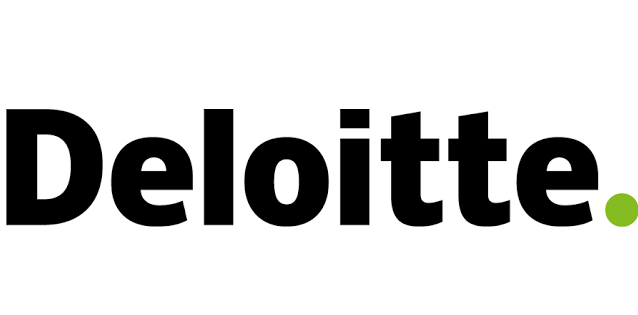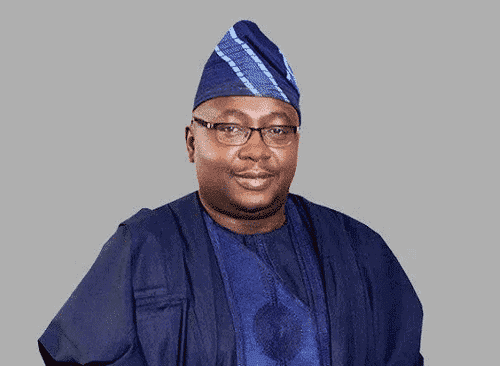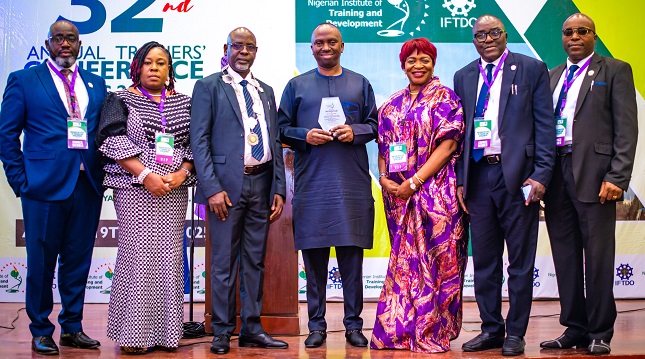News
Many Organisations Aren’t Positioned for Success in Tackling Cyber Demands – Report

The fourth industrial revolution is driving change and digitalisation at an exciting pace. New markets are being created and with every innovation the world becomes more and more digitally connected.
Cyber is growing and moving in multiple dimensions across multiple disciplines—beyond an organisation’s perimeter and IT environments, permeating the products it creates, the factories where it makes them, the spaces where its employees conceive them, and where its customers use them. Cyber is at the centre of digital transformation.
According to Deloitte’s 2019 Future of Cyber survey, there are notable gaps in organisations’ abilities to meet cybersecurity demands for the future. Findings indicate that many cyber organisations are challenged by their ability to prioritise cyber risk across the enterprise (16 percent), followed closely behind by lack of management alignment on priorities and adequate funding, each at 15 percent.
“Cyber leaders today are focused on digital transformation as a catalyst for change for both the greater enterprise and their cyber agendas. The good news is the survey results show that organisations are no longer taking a wait-and-see philosophy to preparing for and responding to cyber incidents”, says Deloitte Africa Risk Advisory Cyber leader Eric Mc Gee, “There is a whole new way of thinking that is starting to occur with how organisations are going to achieve their business outcomes, and that is with a cyber everywhere mindset.”
Findings from the 500 C-suite cybersecurity executives surveyed also suggested that there is still much work to do in aligning cyber initiatives to executive management’s digital transformation priorities.
There is a real gap that must be bridged, with finite budgets and resources as well as a lack of prioritisation by executive management. The overall consensus was that many organisations aren’t fully equipped to efficiently and effectively tackle today’s cyber demands.
Findings of the Future of Cyber survey include:
– 43 percent of surveyed CISOs indicated they report directly to the CEO. This is consistent across the total survey population where 32 percent of respondents indicated the CISO reported to the CEO, with only 19 percent indicating that the role reported to the CIO.
In Deloitte’s experience facilitating hundreds of CISO transformation labs over the past five years and through informal collection of data, nearly 80 percent of CISOs report to a CIO or CSO. This indication that CISOs are, in fact, directly reporting to a CEO is quite encouraging but counter to Deloitte’s experience.
– Half of organisations (49 percent) have cybersecurity on their board agenda at least quarterly. On the other hand, half of boards are not discussing cyber as often as they should. More concerning is that only 4 percent of respondents say cybersecurity is on the agenda once a month.
– While organisations are prioritising digital transformation, only 14 percent of cyber budgets are allocated to provide for cybersecurity in transformation efforts.
– Less than 20 percent of organisations have security liaisons embedded within business units to foster greater collaboration, innovation, and security.
– Organisations are turning to third parties to manage certain functions of their cyber operations. According to 65 percent of the CISOs surveyed, 21-30 percent of total cyber operations are outsourced, with nearly half (48 percent) of CISOs selecting insider threat detection as a top function that they turn to third parties to manage.
– There’s a disconnect between the majority (85 percent) of the survey respondents who indicate that they are using Agile/DevOps in application development and then ranking DevSecOps lowest (11 percent) on the cyber defence priorities and investments areas, which may explain why 90 percent of organisations surveyed experienced disclosures of sensitive production data within the past year.
Data integrity (35 percent) was the top-ranked cybersecurity threat respondents were most concerned about followed by unintended actions of well-meaning employees (32 percent) resulting in a negative event and then followed by technical vulnerabilities (31 percent).
“The aim of this survey report is to put the numbers into context and to expand the dialogue and acceptance of cyber everywhere so that organisations are not limited by it but empowered to embrace the opportunities it will create,” says Mc Gee.
As organisations embrace digital transformation and shift to the cloud increasing the complexity of technology infrastructure and outsourcing workloads to third parties, they are also expanding their cyber risk.
Cyber will become more prolific across systems, platforms, and people — employees, customers, and partners. Deloitte notes that enterprise leadership will have to correlate all of that to stay ahead of the adversary and protect the organisation’s most valuable assets.
Methodology
The Deloitte 2019 Future of Cyber Survey, in conjunction with Wakefield Research, polled 500 C-level executives who oversee cybersecurity at companies with at least $500 million in annual revenue including 100 CISOs, 100 CSOs, 100 CTOs, 100 CIOs, and 100 CROs between January 9, 2019, and January 25, 2019, using an online survey.
News
Nigeria Taps $190M JICA Loan to Power Underserved Communities

Nigeria is seeking a $190 million renewable energy loan backed by the Japan International Cooperation Agency (JICA), according to Adebayo Adelabu, minister of power.

Minister Adebayo-Adelabu
In a statement released by the ministry on Saturday, Adelabu disclosed the plan during the 9th Tokyo International Conference on African Development (TICAD 9) in Yokohama, Japan, where the Nigerian delegation led by President Bola Tinubu held high-level discussions on power, infrastructure, and industrial transformation.
Adelabu said the facility is aimed at scaling distributed renewable energy solutions across underserved communities. “This builds on the recently launched $750 million World Bank Distributed Access through Renewable Energy Scale-up (DARES) programme under the Mission 300 Compact, which aims to bring clean and reliable electricity to more than 17 million Nigerians,” the ministry said.
The minister also held talks with Japanese corporations including Toshiba, Hitachi, Japan’s transmission and distribution corporation, and energy exchange corporations. Discussions focused on strengthening transmission infrastructure, improving operational efficiency, and cutting system losses.
The ministry said these engagements build on recent Federal Executive Council approvals for counterpart funding of N19.08 billion to unlock a $238 million loan from JICA. The loan will finance the expansion of the national grid, including the construction of over 200km of new 330kV and 132kV double circuit lines, six new substations, and extensions to existing facilities.
Three substations funded through a $32 million JICA grant—located in Apo (FCT), Keffi (Nasarawa), and Apapa (Lagos)—are also set for commissioning, a move expected to boost supply reliability for households, industries, and business hubs, including the Lagos Port.
Speaking during a panel session themed “HICKARE Africa: Harnessing Innovation, Co-creation, and Knowledge for Accessible and Resilient Energy for Africa”, Adelabu highlighted Nigeria’s energy gap, noting that only 55–60 percent of the population currently has access to electricity, much of which is unreliable.
He outlined the government’s approach to expand grid access in urban areas while accelerating off-grid solutions such as solar mini-grids and standalone systems in rural and peri-urban communities. He pointed to challenges including limited access to affordable capital, high costs for rural households, and the under-utilisation of productive-use equipment.
Despite these hurdles, the minister reaffirmed the government’s commitment to reforms through supportive policies, private-sector collaboration, and increased local manufacturing of renewable energy components.
Adelabu commended JICA and the Japanese government for their “long-standing support” to Nigeria’s power sector, praising their contributions to infrastructure, training, technical studies, and financing. He expressed optimism for deeper partnerships between both countries in driving Nigeria’s energy transition.
News
Banigbe, T2 CEO says Nigeria’s Growth Hinges on Learning, Innovation, and Afrocentric Content

Obafemi Banigbe, chief executive officer of T2, has stressed that Nigeria’s long-term economic transformation depends on continuous upskilling, digital learning, and workforce adaptability.

Speaking as Special Guest at the 32nd Annual Trainers’ Conference (ATC 2025) of the Nigerian Institute of Training and Development (NITAD), held recently at the Shehu Musa Yar’Adua Centre, Abuja, Banigbe warned that without deliberate investment in human capital and technology-driven innovation, the nation risks lagging behind in a rapidly evolving global economy.
Drawing from personal reflections, practical insights, and a forward-looking vision, Banigbe urged Nigerians to reimagine approaches to learning, work, and growth in order to build a prosperous, inclusive, and innovation-led society.
He emphasized that the traditional model of “learning once and working forever” is obsolete.
“With Nigeria projected to become the world’s third most populous nation by 2050, and 70 percent of its citizens under 30, the need for continuous upskilling, digital learning, and adaptability is not optional, it is existential,” he stated.
Banigbe underscored the importance of democratizing access to digital tools, ensuring that every Nigerian child has the same opportunities as peers in developed economies.
He called for the creation of Afrocentric educational content, including culturally relevant cartoons, to help children learn science, mathematics, and history through familiar cultural references rather than foreign identities that disconnect them from their environment.
He also urged a national shift away from a culture that prizes certificates and training hours to one that rewards competence, innovation, and problem-solving.
He envisioned a civil service and workforce driven by solutions rather than processes, stressing that while artificial intelligence may analyze and automate, it cannot dream, uphold ethics, or create new nations, a reminder of the enduring human advantage.
Banigbe further encouraged adoption of cost-effective training models such as online platforms, virtual cohorts, and open-source learning, while acknowledging the continued value of global exposure where local resources fall short.
During an interactive question and answer session, he addressed concerns around affordability, accessibility, and the role of self-driven digital education in shaping Nigeria’s future-ready workforce.
He assured participants that T2 itself is on a path of transformation, committed to delivering world-class services as a proudly Nigerian brand.
In recognition of his contribution to national dialogue and thought leadership, the President of NITAD, James Bulus, presented Banigbe with an Award of Excellence.
News
NACCIMA, TETFund Forge Alliance to Boost Innovation, Skills, Economic Growth

The Nigerian Association of Chambers of Commerce, Industry, Mines and Agriculture (NACCIMA) and the Tertiary Education Trust Fund (TETFund) have agreed to a new strategic partnership aimed at driving innovation, entrepreneurship, and workforce readiness.

Led by its National President and Chairman of the Organized Private Sector of Nigeria (OPSN), Engr. Jani Ibrahim, a high-level NACCIMA delegation visited the TETFund headquarters in Abuja today.
The team was received by the Executive Secretary of TETFund, Arc. Sonny S.T. Echono, during what both parties described as a milestone engagement.
Discussions during the meeting focused on collaborative initiatives including entrepreneurship development, support for the green economy, commercialization of academic research, industry–academia synergy, and skills development to better equip graduates for the evolving demands of the labour market.
A key outcome of the meeting was the mutual agreement to sign a Memorandum of Understanding (MoU) and establish a NACCIMA–TETFund Joint Technical Committee that will oversee the implementation of agreed initiatives.
Both sides also expressed commitment to developing additional partnership frameworks that will bolster Nigeria’s competitiveness and economic resilience.
Also present at the engagement, Prof. Umar Bindir lauded the collaboration, highlighting the need for structured, long-term partnerships between academia and the private sector to generate practical solutions to Nigeria’s socio-economic challenges.
Arc. Echono, in his remarks, praised NACCIMA’s leadership in promoting enterprise and innovation, and reaffirmed TETFund’s readiness to work closely with the Organized Private Sector to foster research, innovation, and economic transformation.
This collaboration positions NACCIMA as a key driver of national development, helping to bridge the gap between education, enterprise, and policymaking, while empowering young Nigerians and strengthening the foundation of the country’s knowledge economy.

 E-Financial2 days ago
E-Financial2 days agoFBNQuest Merchant Bank Facilitates Landmark ₦5Bn Commercial Paper Programme for Accion Microfinance Bank

 E-Business2 days ago
E-Business2 days agoNDPC Begins Probe of Banks, Others for Data Breaches

 Telecom2 days ago
Telecom2 days agoDigital Realty Commits to Africa’s Digital Transformation @ Launch of LKK2 Data Center

 Telecom2 days ago
Telecom2 days agoIntel–U.S. Partnership Reshapes Semiconductor Landscape with Historic Equity Agreement

 E-Financial2 days ago
E-Financial2 days agoUBA to Deepen Financial Inclusion, Boost Savings’ Culture with Super Savers’ Promo

 Telecom2 days ago
Telecom2 days agoNITDA Alerts Nigerians to eSIM Security Flaw Deployed to Hijack Devices Worldwide

 E-Financial2 days ago
E-Financial2 days agoNigeria Leads Africa in Stablecoin Adoption with $22Bn in Transactions

 E-Financial2 days ago
E-Financial2 days agoFidelity Bank Resumes Intl Transactions on Naira Debit Cards



























